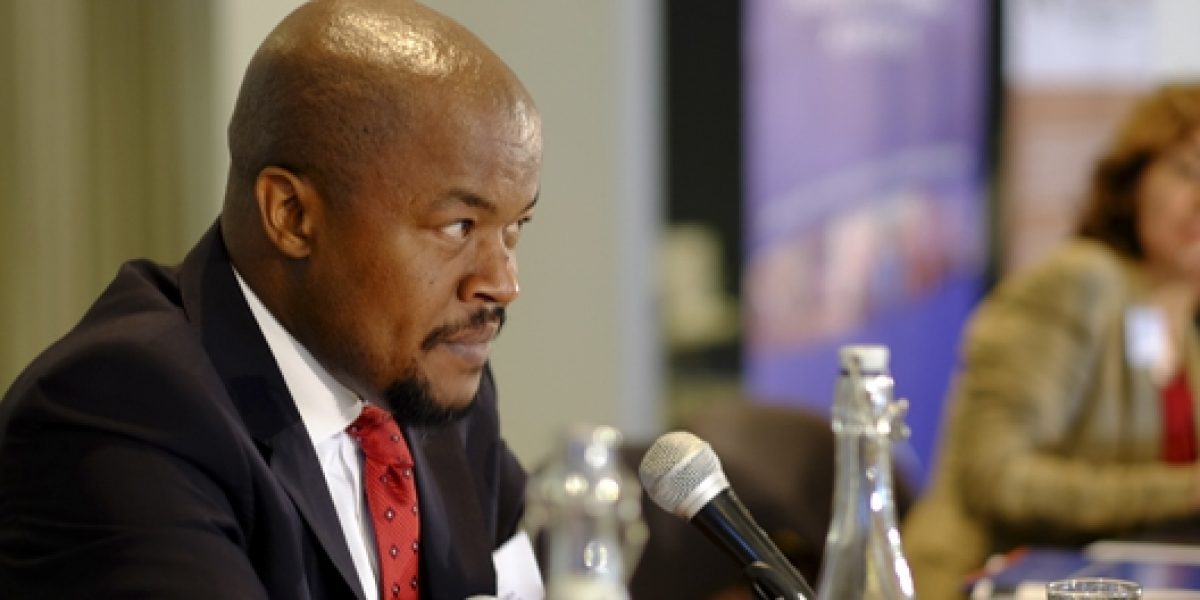Photos from the event are available here.Hosted by SAIIA’s Economic Diplomacy Programme and the Humanities Department at the University of Pretoria, the conference theme was ‘Growth, Resilience, the G-20 and Africa.’
Global economic growth is faltering. Africa is still enjoying good growth but needs global growth to sustain this and structural reforms to decisively address poverty. The conference will provide a platform for discussion of the G20 growth and development agenda and the recent November 2014 G20 summit by government, business, civil society, analysts and other stakeholders. African stakeholders attending include think tank leaders drawn from the Global Economic Governance Africa (GEGAfrica) project, of which SAIIA is a member. For more information and articles relating to this network, visit www.gegafrica.org,
Event details
Date: Tuesday, 2 December 2014
Time: 09h00 – 16h40
Venue: Sandton, Johannesburg
Programme
Download the 2014 Annual African G-20 Conference programme (479.21 kB).
Download the short biographies of all the speakers (395.97 kB).09h00 – 09h05 Welcome: Ms Elizabeth Sidiropoulos, Chief Executive, SAIIA
09h05 – 09h15 Opening Remarks:
Mr Kuseni Dlamini, Council Member, SAIIA [Speech, PDF]
Mr Chris Wake, Head of Global Development Partnerships, DFID Southern Africa
Session 1: Perspectives on the 2014 G-20 Summit
Chair: Elizabeth Sidiropoulos, Chief Executive, SAIIA
This session will seek to provide perspectives on the outcome of the November 2014 Summit for South Africa and for global growth and development. Of relevance are the Summit outcomes and how the G20 Agenda may alter as Turkey takes over as chair. For South Africa, the stated G20 aim of raising collective GDP by 2.1 percent by 2018 above current trajectories is of direct interest given the National Development Plan’s objective to achieve average GDP growth of over 5 percent.
09h15 – 09h45 Keynote Address: ‘The G20 and Africa’s Development Challenges’ (PDF)
Dr Bheki Mfeka, South African G-20 Sous-Sherpa, Economic Advisor
to the President, and NEPAD Sherpa
09h45 – 10h00 Questions
10h00 – 10h20 Special Remarks – The Brisbane Summit Outcomes
Mr Chris Munn, Chargé d’Affaires a.i., Australian High Commission [Speech, PDF]
10h20 – 10h40 Special Remarks – Turkey’s Agenda for 2015 as G-20 Chair
HE Kaan Esener, Ambassador of the Republic of Turkey to South Africa
[Speech, PDF]
10h40 – 11h00 Discussion
11h00 – 11h30 Tea
Session 2: The C-10, G-20 and African Growth
Chair: Wolfe Braude, New Business Development and Stakeholder Manager, SAIIA
11h30 – 11h50 Address: ‘The G20 and financial inclusion, and international tax reform’
Dr Jo Marie Griesgraber, Executive Director, New Rules for Global Finance
[Speech, PDF]
11h50 – 12h00 Questions
12h00 – 12h45 Panel – The C-10, the G-20, Tapering, Currencies and Continued African Growth
In its 2014 communiques the C10 urged the G20 to intensify efforts to address underlying structural problems to bring the global economy back on a sustainable and high growth trajectory from a low-growth trap. The panel will consider whether current economic growth in Africa can be maintained as the weak, sluggish global economy transitions to hopefully balanced and sustainable growth. The transition occurs with mixed approaches to monetary policy, with the US Federal Reserve concluding stimulatory measures whilst the European Central Bank and Bank of Japan increase such support. For Africa this occurs as the continent seeks to develop capital markets and manage macro-economic environments and currencies to sustain and reinforce growth. Does the C10 have a key role to play? How does this relate to Sub-Saharan Africa’s nascent efforts to develop capital markets? What are the policy options for African states and can the continent’s growth be maintained?
Moderator: Professor Emmanuel Nnadozie, Executive Secretary,
African Capacity Building Foundation, Zimbabwe
Panellists: Mr Martin Mwelfwang, International and Development Law Office,
Central Bank of Nigeria, Abuja [Speech, PDF]
Dr Axel Schimmelpfennig, Senior Resident Representative in South Africa,
International Monetary Fund
Mr Dawie Roodt, Chief Economist, The Efficient Group, South Africa
Ms Cleo Rose-Innes – Chief Director: International Finance and Development,
National Treasury, South Africa
12h45 – 13h15 Discussion
13h15 – 14h15 Lunch
Session 3: The G-20 and African Development
Chair: Lesley Wentworth, Acting Programme Head, SAIIA
14h15 – 14h45 Address: ‘The G20 and the post-2015 Development Agenda’ [Speech, PDF]
Mr Walid Badawi, Country Director South Africa, United Nations Development Programme
14h45 – 15h00 Questions
15h00 – 16h00 Panel – The G20 and Africa’s Practical Development Challenges
A key question for many African policymakers, business and civil society players is can the G20 practically support Africa’s continued development or will Africa remain peripheral to G20 member concerns, especially in the ongoing climate of sluggish growth? Development initiatives by the G20 include the ongoing Development Working Group and related 2013 St Petersburg Development Outlook, which focuses on infrastructure, domestic resource mobilisation, food security and trade. The challenge for Africa is to ensure that sustained and broad-based economic growth is achieved, resulting in structural transformation, employment and diversified economies. This raises questions: Should the G20 have a dedicated African focus and how could the impact of this be measured? What possibilities exist for Africa to better articulate its practical needs to the G20? How could the G20 support Agenda 2063, Africa’s framework for socio-economic transformation over the next 50 years, and similarly, the post-2015 development agenda?
Moderator: Mr Elias Masilela, Executive Chairman, DNA Economics
Panellists: Mr Franklin Cudjoe, Imani Centre for Policy and Education, Ghana
Dr Jacklyn Arinaitwe, Research Fellow, Advocates Coalition for
Development and Environment, Uganda [Speech, PDF]
Dr Hoseana Bohela Lunogelo, Executive Director, Economic and Social
Research Foundation, Tanzania [Speech, PDF]
Dr Isaac Shinyekwa, Research Fellow, Economic Policy
Research Centre, Uganda [Speech, PDF]
16h00 – 16h30 Discussion
16h30 – 16h40 Closing


